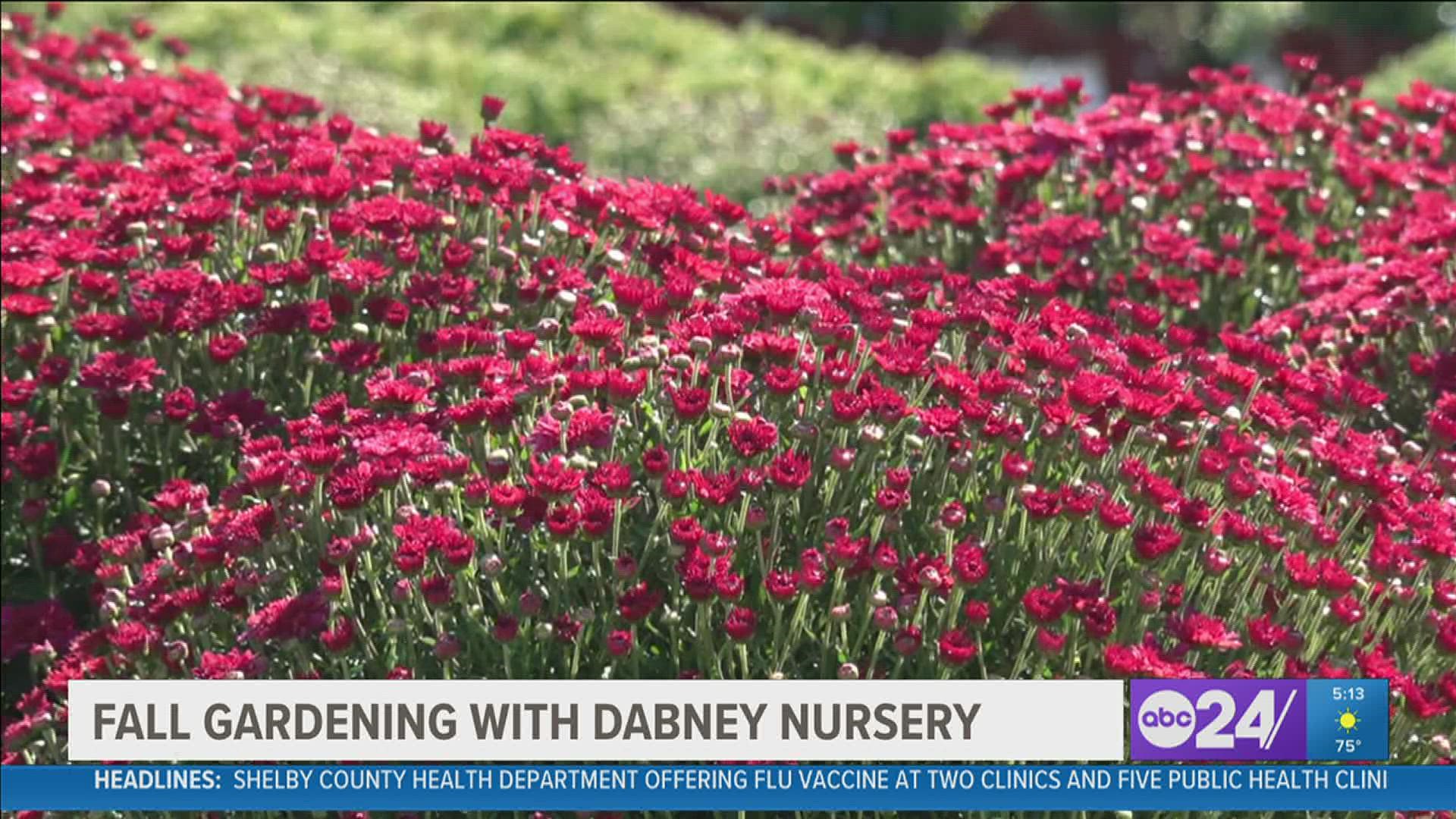MEMPHIS, Tenn. — As the colder temperatures begin to hit the Mid-South, it’s time to start thinking about preparing gardens for the cold. And while most may not think of fall for gardening and planting, it may be the perfect time.
“This should be the main planting season of the year but consumers plant more in the spring,” said Mark Pitts, Plant Propagator at Dabney Nursery. “They are missing out on this best opportunity to plant this time of the year, because not only is it cooler for them, the plants will need less maintenance, less attention, and they’ll be further along next spring.”
So what should someone plant in the fall?
“Fall is the traditional time to plant trees. This is the time that trees are starting to go dormant, and the sap drops into the roots. And it makes moving trees easier and they respond well to that movement,” said Pitts.
If people plant their trees in the fall, mother nature will take care of those trees until next summer and they will be further along than those trees that were planted in spring.
“Fall is also a time when certain plants bloom. We think of spring and summer as flowering time, but there’s lots of things that wait until it starts cooling off to start blooming. Some of the most popular and well-known ones would be mums as well as pansies and then there’s the ornamental cabbages and kale,” he said. “One of the things that is traditionally done in the fall is to plant bulbs. This would include things like daffodils, tulips, Cala lilies and a variety of other oriental lilies and things.”
Pitts said bulbs are dormant and all of their energy is stored inside the bulb.
“Most of our bulbs will come back every year. The exception to this is tulips, which we plant in the fall for a one-time spring bloom,” said Pitts.
“I like to garden because it’s stress relieving. I like being out in nature. I like having my hands in the dirt,” said Amber Coletta. “I like to explore with different plants, and I think each yard is its own ecosystem. So, what works in one person‘s yard is not necessarily going to work in another person’s yard.”
“I think anybody that gardens goes through a lot of successes, and a lot of failures,” said Coletta. “But then, at the end of it, it’s kind of rewarding, when you step back and look and you’re thinking ‘OK I did that.’”

